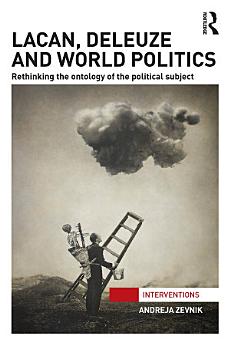Lacan, Deleuze and World Politics: Rethinking the Ontology of the Political Subject
About this ebook
This investigation into political appearance of subjects through concepts of law, body and life is led and influenced by the thought of Gilles Deleuze and Jacques Lacan, as well as Alain Badiou, Antonio Negri and Slavoj Žižek. The book takes on various conceptualisations of life, explores the relationship between law and life and develops an alternative notion of legal and political existence in particular in the context of rights. On the back of Guantánamo’s legal and political discourses this work aims to show why and how the problems of world politics or the limitations of (human) rights discourse require an engagement with questions such as what it means to exist as a human being, what forms of life are politically recognised, which are not, and why this distinction.
By pointing to a different ontology for thinking and understanding global politics and demonstrating how a trans-disciplinary and philosophical approaches can foster the debates in world politics, this book will be of interest to postgraduates and scholars working on critical normative ideas in international politics, critical security studies and critical legal studies.
About the author
Andreja Zevnik is a Lecturer in International Politics at the University of Manchester, UK. Her research interests include theories of subjectivity, political violence and resistance, aesthetic politics, law and psychoanalysis. She is a co-editor of Jacques Lacan between psychoanalysis and politics (Routledge, 2015) and a convener of Critical Global Politics research cluster at Manchester.






